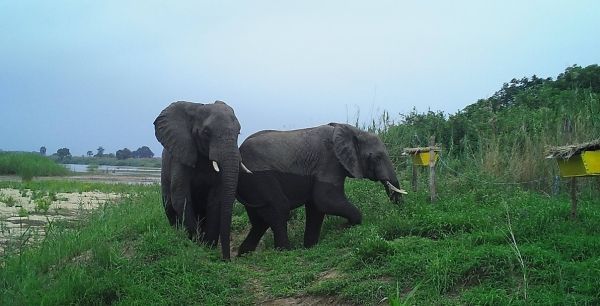A University of Idaho-led team of researchers found that experimental fences reduced the number of times elephants left Mozambique’s Gorongosa National Park to raid nearby crops by 80-95%; beehive fences appeared to be the most effective at deterring crop raiding while also providing a revenue source for neighboring villages through the production of honey.
The team’s evaluation of various fencing strategies for discouraging crop raiding by elephants outside Gorongosa was published today in Conservation Letters.
Crop raiding by wildlife results in billions of dollars in economic losses globally and threatens wildlife conservation efforts by creating negative human attitudes toward wildlife. Human and wildlife conflict can be exacerbated near protected areas like Gorongosa National Park, where the elephant population has risen to roughly 600 after falling by more than 90% during a civil war in the 1970s-90s.
“The better the elephant population does, the more animals leave the park and raid crops. That becomes a legitimate issue for the people living near the park as they are mostly subsistence farmers,” said Ryan Long, a U of I assistant professor and a lead researcher on the paper. “Negative interactions can lead to elephants being killed by people, or people being killed by elephants.”
Continue reading at University of Idaho.
Image via University of Idaho.


